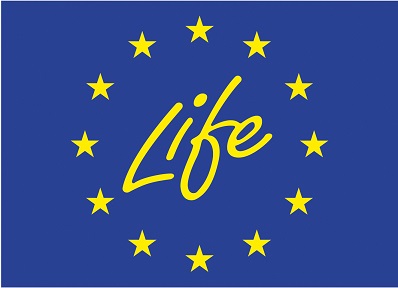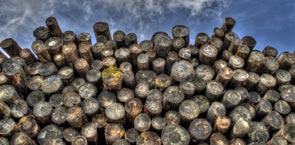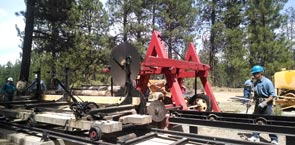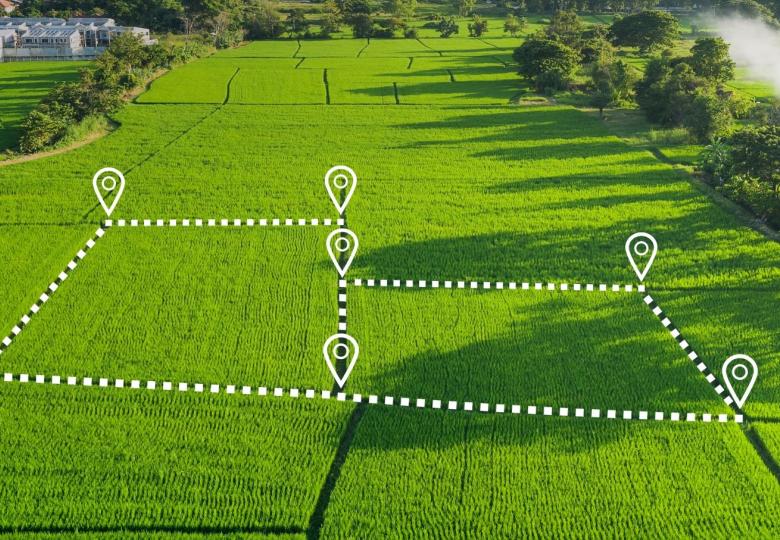New training turns EUTR due diligence to timber trade advantage
New knowledge, tools and free training in 12 EU countries- The initiative, "Increasing Awareness and Capacity to Support Effective Implementation of the EU Timber Regulation” under the joint project Supporting Legal Timber Trade was undertaken by Preferred by Nature and funded with the contribution of the LIFE Programme of the European Union. The goal was the consistent implementation of the EUTR among the EU’s thousands of SMEs, and to help these make illegality risk assessment due diligence an integral, constructive element within their business and administrative systems.

The Project’s package of training and support was (initially) offered in 12 EU states; Belgium, Denmark, Estonia, Germany, Latvia, Lithuania, Holland, Poland, Portugal, Romania, Hungary and Spain. It was free of charge and easily accessible to companies across the SME spectrum via an online platform that collects every bit of necessary knowledge as well as user-friendly tools and guidance. 1-day training sessions in the before mentioned EU states was available free of charge in the fall of 2017.
A case study programme was open in Denmark, Poland, Germany, Belgium, the Netherlands, Spain, Portugal, Romania, Hungary, Estonia, Latvia and Lithuania. The programme offered a full risk assessment on an agreed scope of a company's supply chain from forest legality experts - free of charge. The companies engaged in sharing their experience with the project that in return would be able to develop EUTR tools and guidance that match industry needs.
The core project goal was to tackle continuing lack of knowledge of the EUTR’s, sometimes seemingly complex requirements and show companies that due diligence is at heart good business practice.
The Project developed new country specific information that assessed illegality risk of timber supply, from over 40 timber exporting countries worldwide. This too was distributed free, both during the one-day SME training in the 12 Project countries, and also via the new online platform, where all the initiative information was open access and publically available.
Wider due diligence benefit
The Project’s primary goal was to build due diligence awareness and capacity among SMEs, improving their knowledge and skills in assessing illegal harvesting and trade risks across the EU’s core timber and wood products supply-base worldwide.
But aiming for wider benefits too. For example, Competent Authorities (CAs) and Monitoring Organisations (MOs) across the EU to have free, open access to the Project tools and guides. Giving them a valuable new resource in support of their respective roles, in policing and supporting application of due diligence, plus wider EUTR implementation.
The Project in detail
During its two years, the Project undertook a wide and varied range of activities in support of its central goals of increasing SME’s EUTR awareness, knowledge and building their due diligence and implementation skills and expertise. And it has delivered valuable tools and resources in the process.
The vast quantity of the country-specific risk-assessments the Project develops, 40 in total, provided an unique and user-friendly collection of risk data that, to date, has just not been available for SMEs to use. And since this database covered the bulk of EU timber and wood products imports, it gave SMEs the tools and guidance to undertake effective due diligence in most of their supply chains.
Besides delivering the EUTR and due diligence training, tools and information, the training sessions also fostered cooperation, coordination, experience and best practice sharing between businesses. And as CAs and MOs EU-wide access the resources, this was extended across the EU timber trade.
Outreach was also a core function of the Project, ensuring the trade was alerted to its role and activities. The project anticipated to be in direct engagement with 600-800 SME Operators in the 12 EU countries. Firstly, awareness was raised in order to promote drive for the training sessions (one of which runned in each of the 12 target countries) and the supporting tools and data. Critically, there was associated activities that raised awareness of the EUTR itself. For many SMEs, it remained an unknown quantity and they were unaware of their compliance, or not. These businesses were set to be key Project targets.

Clarity is key
An essential Project goal was also to cut through the complications and lack of clarity that have made the EUTR and the exercise of due diligence more of an obstacle for SMEs than it needs to be. Two years after the Regulation came into force, there was still general lack of understanding of where to obtain and how to interpret data and documentation to support due diligence processes and provide indicators of risk.
The EU Forest Law Enforcement, Governance and Trade (FLEGT) Voluntary Partnership Agreement initiative has generated vast amounts of information and clarified legal requirements in many supplier countries. But even this information is often still not in a format, or style to make it easily comprehensible by the wide range of EU trade stakeholders, or of practical use in coming to meaningful conclusions on timber legality risks. This inevitably further impacts SMEs’ capacity to implement EUTR due diligence.
Ensuring the legality of timber sources also, of course, becomes increasingly complex the further back you go along the supply chain, as importing and exporting procedures, processing and mixing of timber products builds each step of the way.
Given the current complexity of paperwork and information provision, by the time products are imported by an EU ‘operator’, the paper trail can be virtually impossible to follow to the level required for EUTR due diligence.
So, again, good and reliable data, tools and training, with guidance on how to put it all to work, are of crucial importance for SMEs.

Risk-based supply chain solutions
Use of risk-based strategies in responsible sourcing was another core building block of this Project. Risk assessment is a concept that has developed rapidly in recent years, and it’s proving to be a highly cost-effective solution in complex supply chains.
The foundation of this approach is, of course, reliable and specific information about risks. Unfortunately, this is where the overall FLEGT process has fallen short, with inconsistent EUTR implementation as the result. Often the timber legality information is too generic. For instance, it may give a general indication of high risk for a country as a whole, when certain species or forest types within that country may, in fact, have a negligible risk level. The data, once more, is also often presented in a way that a timber trader on the other side of the world finds nearly impossible to interpret, let alone use to make sound judgements about risk. Furthermore, the information is often fragmented and hard to find. In some cases, it’s just not available.
This Project addressed all these gaps blocking an effective EUTR implementation. Assessed and minimised supply chain risks, that were absolutely core elements of the free training sessions.

Due diligence = good business sense
This Project helped EU timber trade SMEs to take a step closer to sourcing legal timber products consistently and effectively. It has made a real difference for them and the wider trade, not to mention the forest. And the benefit is not just more effective EUTR implementation, it’s also in terms of business opportunity. Proven legal and, better still, certified wood is increasingly seen to have a competitive edge in the EU market over material from unknown or legally dubious sources. And the differential between the two keeps growing. So, besides ensuring EUTR compliance, it is in the commercial interest of EU SMEs to supply, and be seen and proven to supply legal timber.
Moreover, effective due diligence and supplier risk assessment practice is also increasingly accepted as a tool for improving overall supply chain management and efficiency. It can additionally promote consistent and accurate communication and even help build closer relations and understanding between buyer and supplier.
This Preferred by Nature Project gave the EU timber trade, a unique opportunity to achieve.

Tools and guidance
Guides, tools and assessments developed by the project have been added to the following list during the course.
Database that provides access to all timber risk assessments and tools, which companies can use to help them meet the due diligence requirements of market regulations such as the EUTR:
Nicole van Dooren from Woodimex International talks about her experience with the EUTR, their involvement with the project and about building their due diligence system with tools and information from the Preferred by Nature Sourcing Hub:
Anette Espensen and Tina Andresen from Creativ Company talks about their experience with the EUTR, their involvement with Preferred by Nature's Supporting Legal Timber Trade project and the process of building their due diligence system to adhere to the EUTR with tools and information from the Preferred by Nature Sourcing Hub
Cristian Holobuic talks about Ecolor's experience with the EUTR, their involvement with Preferred by Nature's Supporting Legal Timber Trade project and how the EUTR has helped them map their supply chain and build their due diligence system to adhere to the EUTR with tools and information from the Preferred by Nature Sourcing Hub
Preferred by Nature Sourcing Hub "How To" videos
- The video series will help you get the most out of the Sourcing Hub and help you in the process of implementing a due diligence system to comply with the EUTR.
- General questions and answers about EUTR, risk and due diligence
- Pamphlet presenting the case study programme where companies can get support in meeting the EUTR requirements and set up a solid Due Diligence System.
Leaflet: The EUTR - a guide for retailers
- Leaflet about what the EU Timber Regulation is and what it requires you to do? Use this leaflet to find out more, including what products you need to carry out due diligence on, and how to do the due diligence
Leaflet: EUTR Supplier Relations Leaflet
- Are you required to carry out due diligence on the timber you sell? Use this leaflet to find out how to get all the information you require from your suppliers while also maintaining good relations with them.
- 2-pager hand out providing a sneak peak at the online platform that will host all the project's country risk assessments, tools and guidance (May 2017).
Press release: call for volunteers
- Press release calling for companies in Denmark, Germany, Latvia and Romania to volunteer for our case study programme in return for free expert help.
- Press release about the training sessions in the 12 EU member states (Lithuania, Latvia, Belgium, Netherlands, Denmark, Poland, Germany, Romania, Hungary, Spain, Portugal, Estonia)
Press release: New timber risk assessments help companies source legal wood
- Press release about the launch of all timber risk assessments and tools for companies to access and download free of charge.
Thematic article: Timber Testing Techniques
- A guide to laboratory techniques to determine species and origin of timber products.
Thematic article: Fake Documents
- A guide on how to spot fake documents and what to do about them.
Thematic article: A Practical Guide to CITES for EU Timber Traders
- A guide with all the essential information that explains how CITES work.
Thematic article: Timber Legality Risk Assessments
- An analysis of the risk assessment results and the key findings of the risk assessment results.
- Project summary, its results, impact and next phase.
- Report explaining how the project results will be continued after the end of the project.
- The final report about the project and it's results submitted to the Funder.
Training material
Presentations developed for the workshops held in the 12 EU member states. Two versions of the training material was developed - one set for target groups that has an advanced knowledge about the EUTR (intermediate) and one set for the target groups who has a basic knowledge about the EUTR (basic).
Training material for basic knowledge workshop (Powerpoint presentations):
- Workshop Introduction
- The EU Timber Regulation
- Exploring Due Diligence: what does it mean in practice?
- The Sourcing Hub: tools to help you conduct due diligence
Training material for intermediate workshop (Powerpoint presentations):
- Workshop Introduction
- The EUTR four years in: NEPCon's experience with Competent Authorities, NGOs and Companies
- How to use the Sourcing Hub in a due diligence process
The European Commission (donor) is not responsible for any claims or views presented in this material. The European Commission's support for the production of this publication does not constitute endorsement of the contents which reflect the views only of the authors, and the Commission cannot be held responsible for any use which may be made of information contained therein.

Sustainable Management of Small Forest Properties for Resilient Forests in Europe (SMURF)
Europe's forests, crucial for their ecological and economic value, face mounting threats. Climate change fuels extreme weather eve...

Innovation Alliance for Training Programmes for Deforestation-Free Supply Chains in Europe (EMM...
Deforestation is the primarily result of the expansion of agricultural land for forest risk commodities (FRCs) such as cattle, woo...

FAO Geolocation collection and communication protocol
In an effort to combat deforestation and promote tools which enhance global monitoring and supply chain traceability, Preferred by...

Preferred by Nature conducts mid-term evaluation for Sabah Landscapes Programme, Malaysia
Forests are intrinsic to the balance of life in Sabah, Malaysia. However, decades of irresponsible logging and clearance for oil p...
